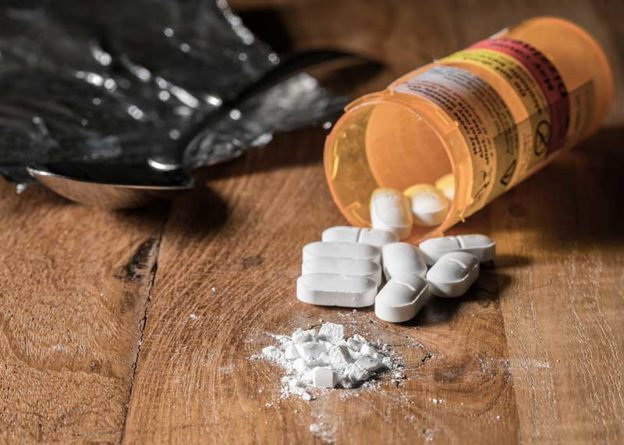Few modern health crises compare to the opioid epidemic. More than 650,000 prescriptions for opioid products are filled every day, while 3,900 people begin using opioids for the first time. Through both prescription drugs and the heroin use they contribute to, opioids kill more than 3,300 people a year while generating $55 billion in social and health costs.
Overcoming Opioid Addiction
If you or a loved one is struggling with opiate addiction, remember that you’re not alone. With the support of professionals, friends, and family, you can overcome this addiction and return to healthy living. The following tips may help you get started on the recovery process:
1. Don’t Judge or Blame Yourself
Patients often blame themselves when facing addiction. Many feel that they should never have started taking opioids in the first place, let alone use them to the point that they became addicted. This blame quickly turns into judgment, with patients feeling weak and worthless for depending on the drug.
Judging and blaming yourself may be a natural reaction, but it is neither fair nor productive. Opioid dependence would not be a personal failure, especially if it began with a medical professional’s prescription. Moreover, the feelings of weakness and worthlessness that come with judging yourself make it harder to overcome the problem. Overcoming opioids takes confidence, and confidence requires believing in yourself and your ability to recover. For the sake of both your mental health and your chance of recovery, you must avoid judging or blaming yourself.
For over 25 years, people from all over the world have chosen Waismann Method as their opioid detox provider.
We know the challenges you face and the importance of creating a unique and personal experience for you right from the start.Call for Detox Options 1-800-423-2482
2. Educate Yourself
Instead of judgment, the most productive response to addiction is to learn everything you can about opioids. The better you understand them, the easier it may be to recover. In particular, you must understand:
- Opioid Tolerance – Tolerance occurs when your body becomes accustomed to a substance. As you take opioids, your body adapts to its effects. You may thus need higher doses to achieve the same impact.
- Addiction vs. Dependence – Dependence is a physical state where you experience withdrawal symptoms if you do not take a drug. Addiction is a regular, compulsive need for a drug. While the two are connected, one can be dependent on a substance without being addicted.
- Withdrawal – If your body has become dependent on a drug, you may experience negative symptoms if you stop taking it abruptly. These can include nausea, insomnia, pain, and fatigue, depending on the drug.
3. Find Support from Family & Friends
Family and friends are invaluable allies in the struggle against addiction. Not only do they support you and want the best for you, but they also know you better than anyone else. Understanding your habits, needs, and vulnerabilities can guide you through the most difficult parts of the detox process. It is thus essential to communicate regularly with your family and friends and involve them in recovery efforts.
4. Understand Your Options for Opiate Detox Treatment
When seeking professional treatment, it’s important to understand all your options. The two best opiate addiction treatment processes are rapid detox and medical opiate detox. Rapid detox involves anesthetizing patients and using antagonists to detoxify their bodies rapidly. This must be performed in a full-service hospital and tailored to a patient’s specific needs; if these conditions are met, it has a nearly 100% success rate. Medical opiate detox also occurs in a professional medical facility but does not involve a pre-set protocol. Rather, the process is tailored to each patient’s preferences and health needs.
In addition to inpatient Anesthesia Assisted Rapid Detox and Medical Opioid Detoxification, several other strategies are popular but generally have lower success rates. These include:
- Cold Turkey Quitting – This involves giving up opioids abruptly. Not only is this physically and emotionally difficult, but it can be dangerous, as rapidly withdrawing from opioids outside of a medical setting puts your health and even your life at risk.
- Maintenance-Assisted Treatment – This involves behavioral therapy combined with administering drugs like methadone and buprenorphine based drugs, often Suboxone. These maintenance drugs are opioids themselves and could easily prolong drug addiction.
- 12-Step Programs – This method enlists the support of your peers. While it can help instill confidence, it does not detoxify your body and add to the cravings that might lead to relapse.
- Residential Treatment (Drug Rehab) – Lengths of stay of between 3 to 12 months. Addiction is usually viewed as an individual’s social and psychological deficits. Treatment focuses on personal accountability and responsibility. Treatment is usually on a group basis and focuses on identifying destructive behavior patterns and adopting new ones.
5. Have the Courage to Become Opiate-Free
While educating yourself and enlisting family and friends’ support gives you the means to overcome addiction, recovery is still a daunting process. Courage is thus essential for becoming opiate-free. Be confident that there are effective medical options to get you through the withdrawal, and you can turn your knowledge into action.
Conclusion:
The Best Way to Getting Over Opioid Addiction
Overcoming opioids takes courage, knowledge, freedom from judgment and blame, and family and friends’ support. The Waismann Method Medical Group helps you obtain all of these in the fight against addiction. We think you can overcome opioid dependence. We want to help you find the best treatment option. For more information, contact us today.
Sources
https://www.practicalpainmanagement.com/treatments/pharmacological/opioids/tolerance-opioids
https://www.cdc.gov/drugoverdose/epidemic/index.html
https://www.hhs.gov/sites/default/files/Factsheet-opioids-061516.pdf






